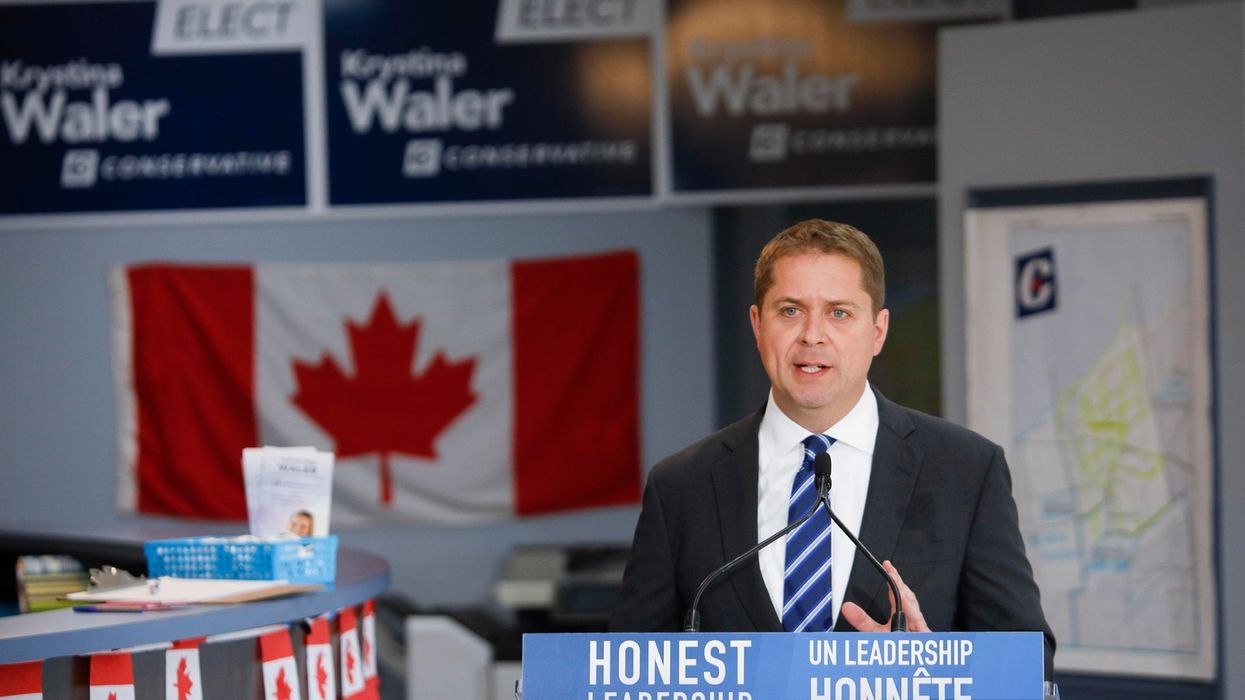Help is on the way for first-time homebuyers and people wanting longer mortgages that provide for lower payments, Conservative Leader Andrew Scheer vowed Monday.
Scheer is now promising that, if elected on Oct. 21, his party will review what’s come to be known as the “stress test.” Rolled out last year by the Office of the Superintendent of Financial Institutions (OSFI), the stress test is basically a financial threshold that any Canadian who wants to procure a mortgage must meet.
READ: EXCLUSIVE: Prime Minister Justin Trudeau Talks Toronto Real Estate
The threshold demands that likely homebuyers show that they are able to financially handle an uninsured mortgage at a higher rate than they qualify for. This is in order to receive a loan from a federally regulated lender. The purpose of the threshold is to protect borrowers from taking on more debt than they can handle. As well, to ensure they have some financial wiggle room if rates trend upward.
Saying that the test goes too far and has unintended consequences, Scheer said his party promises to review the application of the test for new buyers. Additionally, the party will work in concert with the OFSI to scrap it from mortgage renewals.
Scheer made the pledge while campaigning in Vaughan, Ont. where he announced his party’s housing plan. “For millions of Canadians their home is the largest investment they will ever make,” Scheer said.
Reaction was swift.
READ: Premier Kathleen Wynne: Toronto’s Real Estate Influencer Of The Year
"There's some concern any time a politician talks about leaning on an arm's-length financial regulator, because they are supposed to be independent," Ben Rabidoux, president of the market research firm North Core Advisors, told the CBC’s Catharine Tunney. He added that getting OSFI to alter its procedures is essentially out of the government’s hands. He called promising to “really lean on OSFI” a bad precedent and a “bad look”.
In a report published earlier this year, CIBC showed that in 2018 the total value of new mortgages fell by eight per cent, or $25 billion. The bank called for a review of the stress test. The report estimated that the impact of the new stress test accounted for $13 billion to $15 billion of that drop — or 50 to 60 per cent.
READ: Housing Affordability Is A Major Election Issue For Canadians
In addition to revisiting the stress test, Scheer also announced that a Progressive Conservative Party government would:
- allow people to take out 30-year mortgages, up from the current 25-year limit, saying “young first-time home buyers often have their highest earning years ahead of them. And so, as they get promoted and as their incomes go up, they'll be able to carry the mortgages that they've gotten into."
- launch an inquiry into money laundering in the real estate
- make surplus federal real estate available for development.
Both the Canadian Real Estate Association (CREA) and the Canadian Home Builders' Association (CHBA) reacted positively to the announcements.
CREA liked the greater flexibility it would offer home buyers; CHBA liked that it would unlock home ownership for “well-qualified first-time buyers.”
“[The industry has] long asked for common-sense solutions designed to help Canadians to purchase a home of their own,” said Jason Stephen, president of CREA. “The measures announced today by the Conservative party include suggestions we’ve been making to policymakers.”
READ: Everything You Need To Know About The First-Time Home Buyer Incentive
The stress test policy, brought in by the Liberals last year, has been criticized by the construction and real-estate industries.
Still, Rabidoux remained skeptical, though he said the Progressive Conservative Party plan has some good ideas. He’s uncertain whether it would change the country’s housing market landscape.
James Laird, co-founder of Ratehub Inc. and president of CanWise Financial, called the removal of the stress test from mortgage renewals “intelligent.” He added “there was no logic to the existing lender not having a stress test and the new lender having a stress test.”
He also liked the increase in the amortization periods on insured mortgages to 30 years from 25 years. “The 30-year amortization is a superior way to help first-time home buyers than the First-Time Home Buyer Initiative, which is complex and defers a growing debt burden.”
READ: First-Time Home Buyers Incentive Limits Torontonians To Buying Condos
Beginning in 2008, the Harper Conservatives began reducing the maximum mortgage amortization rate for insured mortgages. They started by knocking it down from 40 to 35 years, and in 2011 reduced it to 30 years.
The Conservative finance minister, the late Jim Flaherty, reduced the maximum amortization period to 25 years the following year. He said at the time that while monthly payments would be higher, it would result in less interest and help people pay off their mortgages faster.
The move at the time was meant to address the growing debt burden on Canadians. A major factor in the panic that locked up financial markets in the late 2000s was mortgages that owners couldn’t pay, on properties that were worth less than the loans taken out against them.
READ: 40 Per Cent Of First-Time Buyers Would Sacrifice Finances To Own A Home
In August, Statistics Canada reported that the median mortgage debt of Canadian families that have mortgages nearly doubled between 1999 and 2016, rising from $91,900 to $180,000 in 2016 dollars.
The Liberals revealed their housing plan on the first full day of this election campaign, pledging to expand the First Time Home Buyer Incentive program introduced with this year's budget.
The program is available to first-time homebuyers who earn less than $120,000 a year, but under the expanded program those with incomes up to $150,000 would qualify.
In February, the Liberals announced plans to turn surplus federal properties into new affordable housing.
With files from CBC, Canadian Press





















